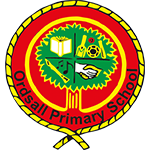English
At Ordsall Primary School we use the National Curriculum as the guidance for our teaching in English. We consider the teaching of all aspects of English to be essential because:
“English is both a subject in its own right and the medium for teaching; for pupils, understanding the language provides access to the whole curriculum. Fluency in the English language is an essential foundation for success in all subjects.” National Curriculum in England Key Stages 1 & 2 Framework Document
The National Curriculum provides the framework for our pupils’ development in key Stages 1 & 2 and divides its guidance into Key Areas: Spoken Language, Reading, Writing, Handwriting and Vocabulary, Grammar and Punctuation.
Spoken language
- Pupils should be taught to speak clearly and convey ideas confidently using Standard English. They should learn to justify ideas with reasons; ask questions to check understanding; develop vocabulary and build knowledge; negotiate; evaluate and build on the ideas of others; and select the appropriate register for effective communication. They should be taught to give well-structured descriptions and explanations and develop their understanding through speculating, hypothesising and exploring ideas. This will enable them to clarify their thinking as well as organise their ideas for writing.
Reading and writing
- Teachers should develop pupils’ reading and writing in all subjects to support their acquisition of knowledge. Pupils should be taught to read fluently, understand extended prose (both fiction and non-fiction) and be encouraged to read for pleasure. Schools should do everything to promote wider reading. They should provide library facilities and set ambitious expectations for reading at home. Pupils should develop the stamina and skills to write at length, with accurate spelling and punctuation. They should be taught the correct use of grammar. They should build on what they have been taught to expand the range of their writing and the variety of the grammar they use. The writing they do should include narratives, explanations, descriptions, comparisons, summaries and evaluations: such writing supports them in rehearsing, understanding and consolidating what they have heard or read.
Vocabulary development
- Pupils’ acquisition and command of vocabulary are key to their learning and progress across the whole curriculum. Teachers should therefore develop vocabulary actively, building systematically on pupils’ current knowledge. They should increase pupils’ store of words in general; simultaneously, they should also make links between known and new vocabulary and discuss the shades of meaning in similar words. In this way, pupils expand the vocabulary choices that are available to them when they write. In addition, it is vital for pupils’ comprehension that they understand the meanings of words they meet in their reading across all subjects, and older pupils should be taught the meaning of instruction verbs that they may meet in examination questions. It is particularly important to induct pupils into the language which defines each subject in its own right, such as accurate mathematical and scientific language.
The links at the bottom of this page sets out the statutory programmes of study and attainment targets for each aspect of English that we teach.
For your information, schools are not required by law to teach the example content in [square brackets] or the content indicated as being ‘non-statutory’.
